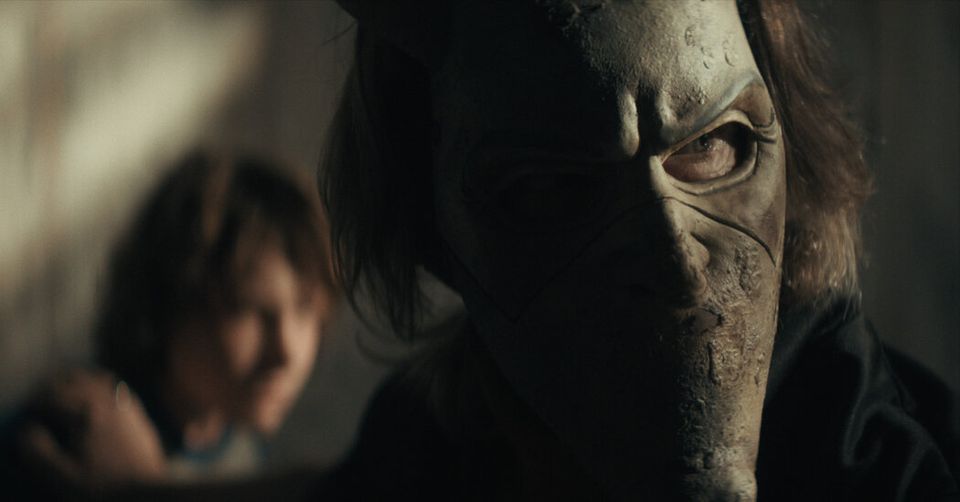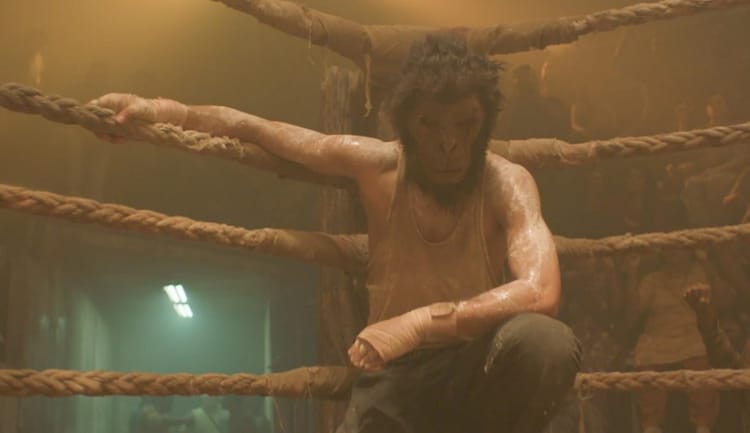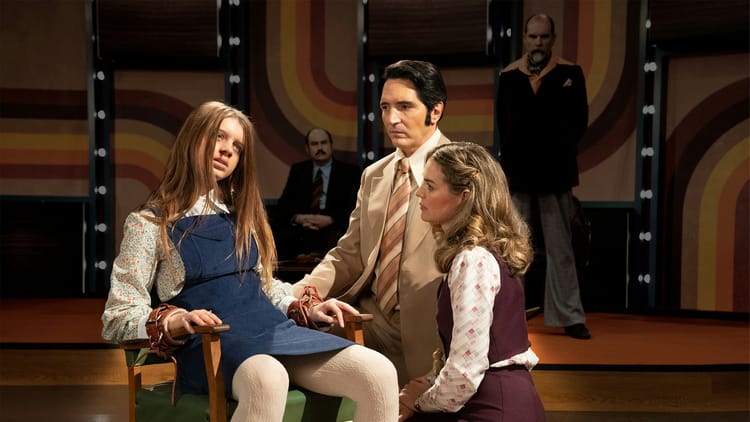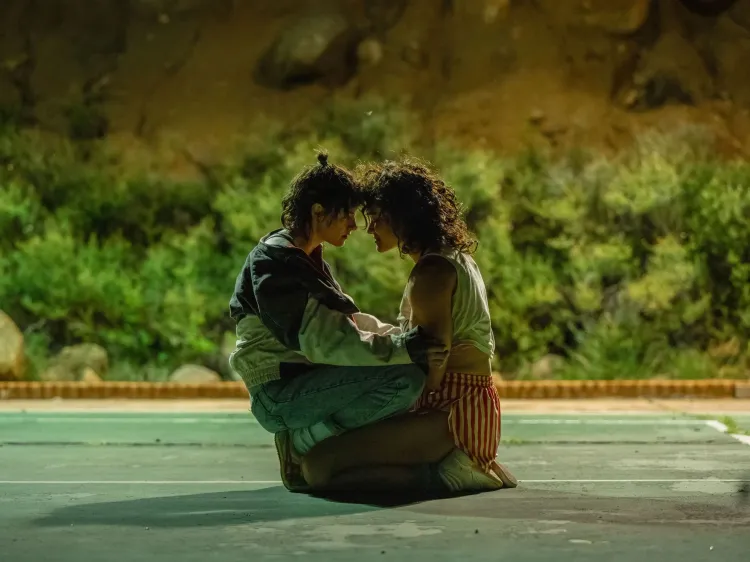The Black Phone

The most irritating thing about watching horror movies is watching characters make decisions that you wouldn’t make. That’s why we crane our heads away, cover our eyes, shout at the screen, “DON’T YOU KNOW THE GENRE OF MOVIE YOU’RE IN?!” It’s where most of my anxiety stems from: when they go towards a dead end, when they decide to hide in the closet, when they, heaven forbid, choose to split up, whenever they tempt fate, I am filled with dread.
I’ve chosen to watch a horror movie, so I know what I’ve gotten myself into. But still, I am sweating, peeking through the gaps in my fingers, asking myself, why I have once again chosen to subject myself to the misery of fictional characters, stupider than me.
That’s why Scott Derrickson’s latest film, “The Black Phone,” is such a breath of fresh air. It’s tense, tight, and thrilling. And you never doubt its characters’ choices.
Finney and Gwen, the film’s sibling protagonists, are rarely making bad decisions. In fact, the prepubescent characters are the cleverest characters in the movie. Finney, played by Mason Thames, knows how to plan ahead and when to pick his battles. His sister, child psychic Gwen, played by Madeleine McGraw, is aware of when to keep her premonitions to herself and when she needs to share her chilling, and occasionally unwelcome, knowledge.
This isn’t some movie logic where the kids just happen to be perfectly suited to the film’s conniving villain, the Grabber. The story takes time to show us that living with their temperamental, rage-prone father has made Finney and Gwen adept at navigating the patterns of abuse. It’s why Finney steps so silently, why Gwen keeps her secrets, why Finney knows to hide his tools, why Gwen’s sense of humor is so morbid, why they both trust each other implicitly. The two of them are ready for whatever terrors may come because they have been living in horror their entire lives.
Thames and McGraw both play their characters entertainingly and sympathetically, without falling into what I call “child actor precociousness.” They’re not too cutesy, nor are they trying too hard. And they hold their own against the formidable Ethan Hawke, playing the notorious Grabber.
Hawke has made a career out of doing whatever he wants. He’ll do Shakespeare, and then star in “The Purge.” He’ll play Jolly the Pimp in financial failure, “Valerian and the City of a Thousand Planets” and then get awards buzz for starring in Paul Schraeder’s “First Reformed.” He’ll spend 19 years filming “Boyhood,” and then play the villain in a show exclusively for Disney+. It seems he’ll do whatever he thinks is fun, which has taken him back to Scott Derrickson after their first collaboration, “Sinister,” in 2012.
In “The Black Phone,” it seems like he’s continuing to have fun behind the mask of the Grabber. The Grabber, which personally I find to be a very funny name, has an uneasy air around him; whenever Hawke is onscreen, you’re not quite sure which way he’s going to go. Because weirdly enough, Hawke brings a surprising tenderness to the child-napping Grabber. It’s a fun performance from Hawke, who continues to prove that nobody loves acting more than him.
It’s a good pairing with Scott Derrickson who also seems to love directing, especially when it comes to horror. Derrickson wears his influences on his sleeve, which to some may seem like homage and to others like copying. To me, I think it’s a bit of Column A and a bit of Column B. The man loves horror movies and he can’t help but radiate it through his vision. Every trick in the book is deployed, with a few tasteful jump scares, some dripping blood, some mauled bodies. But none of them struck me as excessive or gratuitous. They served the film’s story and were tied directly to its main characters.
That’s the biggest draw of “The Black Phone.” It’s an incredibly economical movie, with tight storytelling. No part of it is wasted. Each element of its first act relates to something in the third, each little tidbit becomes a vital clue, each confrontation prepares the characters for its conclusion.
Underneath that is the minutiae of its worldbuilding. We know why Gwen is psychic and we know why the Grabber grabs because it’s spelt out between the clues. Like Finney and Gwen, you have to read between the lines if you’re dying to understand the underlying logic of the movie’s world. You can do that if you want to. Or you can just revel in the tension onscreen and not care about what’s going on behind it.
At the end of the day, “The Black Phone” is like watching someone else do an escape room. On the most literal level, that’s because someone is literally trying to escape a room. But on a more artistic level, it’s also watching Scott Derrickson and his co-writer, C. Robert Cargill piece together a puzzle that coheres. The two of them are trapped in an escape room of their own design, though their stakes are slightly less deadly than Finney and Gwen. But just like it is a relief to see two clever protagonists navigate this dangerous game, it is deeply satisfying to watch Cargill and Derrickson figure out how to tell their story as efficiently, as entertainingly, as smartly as they can.




